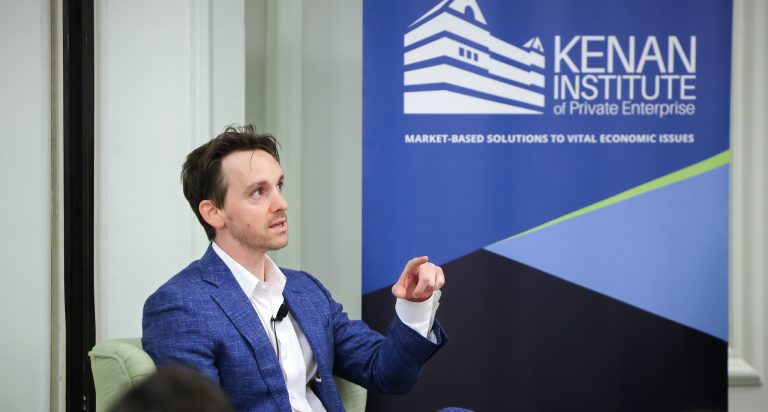
Join us for the 2025 Frontiers of Business Conference: Bridging the Skills Gap on October 9 in Chapel Hill, NC. Be part of the conversation and discover innovative solutions to position workers and businesses to succeed.

In an age of constant information overload, Professor Melissa Geil explores why deep listening is vanishing from the workplace and how that’s quietly undermining communication, trust and innovation.

Registration is open for the 17th annual Alternative Investments Conference on March 27, hosted by the Institute for Private Capital.

Grand Challenge 2025: The Skills Gap
Our 2025 Grand Challenge examines the skills gap – the difference between the skills that employers seek and those that workers possess – which is being driven by technological breakthroughs, demographic changes and cultural shifts in the workplace.

The destruction that Hurricane Helene brought to Western North Carolina in September, followed by this month's wildfires in Southern California, illustrates the financial risk that increasingly unpredictable weather can pose to homeowners and the insurance system.

Five Economic Trends to Watch in 2025
Kenan Institute Chief Economist Gerald Cohen kicks off 2025 with a rundown of five issues that will be top of mind for business leaders and policymakers, accompanied by his analysis.

On Site at COP29: Hope and Hard Realities
UNC-Chapel Hill’s youth representative at this year’s UN climate conference offers her thoughts on key outcomes, the role of the private sector, and the power of diverse and cross-generational perspectives in finding solutions.
2024 Distinguished Fellow Jayashankar M. Swaminathan explores how firms can build operational resilience, focusing on governance, risk management, supply chains, technology and regulatory compliance.

2024 Grand Challenge Recap
Look back at the journey that made up the Kenan Institute's 2024 Grand Challenge: Business Resilience.

The emerging theory-based view depicts entrepreneurs as sophisticated thinkers who form, update, and act on rich causal theories. In support of this view, recent empirical work has demonstrated both (a) the value of theories as well as (b) the importance of experimentation for testing and refining theories. Yet, the process by which entrepreneurs initially form these theories remains largely unobserved.

Embracing Agency in the AI Revolution
Artificial intelligence was a major topic of conversation at the Frontiers of Business Conference on October 10. See how speakers and panelists think the technology will change the future of business.
Q&A with David Deming: Bridging the Skills Gap with AI
Kenan Institute Distinguished Fellow David Deming of Harvard talks about his research focusing on the potential for effective teamwork involving humans and AI.